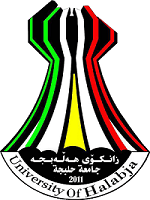تهكنیكی گێڕانهوه له ڕۆمانی(ڕێبهری كتێبسازه كوژراوهكان)ی (عهتا محهمه د)دا
تقنية السرد في رواية (مرشد الكُتُبِيِّين القتلى) للكاتب عطا محمد
DOI:
https://doi.org/10.32410/huj-10480الكلمات المفتاحية:
ڕۆمان، تەکنیک، گێڕانەوە، گۆشەنیگا، فلاش باک، روایة، تقنیة، سرد، نظرة، التغذیة الراجعةالملخص
هذا البحث بعنوان (تقنية السرد في رواية (مرشد الكُتُبِيِّين القتلى) للكاتب عطا محمد، هو محاولة لبيان أهمية عنصر السرد ودوره في بناء أنواع الرواية، ففي هذا البحث بيينا فن الرواية بصورة عملية خطوة بخطوة في جميع الجوانب الفنية. واضح أن الرواية كأحد ألانواع المهمة والبينة للأدب له قرائه الخاص وهو عالم واسع كبير ومليء بالأحداث.
الرواية نوع من الأدب يعتمد قصته غلى عنصر الرواية وعناصره الأخرى (الحدث، الوقت، المكان، الممثل....الخ) أهميتهم واضحة وبينة في الهيكلية السردية ويوجد علاقة قوية بينهم. بمعنى أنه لا ينتج نص بعنصر واحد، لذلك فإن للفن وعناصر الرواية عامل قوي في جلب انتباه القارئ وهذا الذي جعل الرواية تستوعب عدة جوانب فكرية وفنية ونفسية، واضح أن إحدى تلك التقنيات هو السرد الذي في هذا البحث نحاول تسليط الضوء على بعض جوانبه الفنية. معلوم أننا حين نريد تعريف الرواية لا نستطيع أن لا نذكر عنصر السرد لذلك نستطيع أن نقول بأن الرواية هي ثمرة وانتاج سرد خيالي مكتوب تروي قصة حول التجربة الخاصة بالإنسان في مدى بين وواضح. إذن السرد علم تعبير له دور مهم في صنع محطة قوية للقراءة لدى القارئ لسبب أهمية والدور القوي للسرد اخترنا هذه التقنية كجانب حديث عملي في رواية (مرشد الكُتُبِيِّين القتلى) ل عطا محمد.
پوختە
ئهم توێژینهوهیه به ناونیشانی (تهكنیكی گێڕانهوه، له ڕۆمانی(ڕێبهری كتێبسازه كوژراوهكان)ی عهتا محهمهدا، ههوڵێكه بۆ خستنهڕووی گرنگی ڕەگهزى گێڕانهوهو ڕۆڵی له بونیادنانی ژانری ڕۆماندا، لهم توێژینهوهدا، بهشێوهیهكی پراكتیكی ههنگاو بهههنگاو تهكنیكی گێڕانهوه له ههموو لایهنه هونهرییهكانییهوه خراوهتهڕوو، دیاره ڕۆمان وەك یەكێك لە ژانرە گرنگ و دیارهكانی ئەدەب خوێنەری تایبەتی خۆی هەیەو جیهانێكی بەرفراوان و گەورەو پڕ ڕووداوه، ڕۆمان ژانرێكه چیرۆكهكهی پشت بهڕەگهزی گێڕانەوە دهبهستێت، ئهڵبهته ڕهگهزهكانی تری (ڕووداو، كات، شوێن، كارهكتهر...هتد) بایهخیان له پێكهاتهی جهستهی دهقی گێڕانهوهبهندیدا دیاره و پهیوهندی پتەو لە نێوانیاندا هەیە، واته هیچ دهقێك بهتهنها ڕهگهزێك بهرههم نایهت ههربۆیه، تەكنیك و ڕهگهزهكانی ڕۆمان هۆكارێكی بەهێزن بۆ سەرنجڕاكێشانی خوێنەر، دیارە یەكێك لەو تەكنیكانە گێڕانەوەیە كە، ئێمە لەم لێكۆڵینهوهیهدا تیشك دەخەینە سەر چەند لایهنێکى هونهریی ئهم تهكنیكه، ئاشكرایه ههركات بمانهوێ پێناسهی ڕۆمان بكهین ناتوانین باس له گرنگی ڕهگهزی گێڕانهوه نهكهین، دهتوانین بڵێین ڕۆمان بەرهەمێکی گێڕانەوەی خەیاڵی نووسراوه کە چیرۆکێک لەبارەی ئەزموونە تایبەتەکانی مرۆڤەوە بە درێژایییەکی بەرچاو دەگێڕێتەوە، كهواته گێڕانهوه ڕۆڵی گرنگی هەیە لە دروستكردنی ویستگەیەكی بەهێزی خوێندنەوە لەلای خوێنەر، ههر بۆیه له سۆنگهی گرنگی و ڕۆڵی بههێزی گێڕانهوهیه ئهم تهكنیكهمان ههڵبژاردووه، وهك بوارێكی پراكتیكی باسكردن له ڕۆمانی (ڕێبەری كتێبسازە كوژراوەكان)ی (عەتامحەمەد).
المراجع
سەرچاوەكان بەزمانى کوردى:
کتێب:
ـ موفتى، پەری ساڵح (٢٠١٢)، گێڕانەوە لە چیرۆكەكانی ئەحمەد مەحمەد ئیسماعیلدا، چاپی یەكەم، چاپخانەی حاجی هاشم، هەولێر.
ـ سابیر، پەرێز ( ٢٠٠١)، بینای هونەری چیرۆكی كوردی(لەسەرەتاوە تاكو جەنگی دووەمی جیهانی)،چاپی یەكەم، دەزگای چاپ و پەخشی سەردەم، سلێمانی.
ـ عارف، حسەین (٢٠١١)، نووسینەكانم لە بواری ڕەخنەو لێكۆلینەوەدا، چاپی یەكەم، چاپخانەی ئاراس، ههولێر.
ـ عوسمان، رێزان (خاڵە دێوە)، (٢٠١٠)، بنیاتی جۆرەكانی ڕووداو لەڕۆمانی كوردی كوردستانی باشوور ساڵی(1985-1990)، چاپی یەكەم، ئەكادیمیایی كوردی، هەولێر.
ـ ڕەسوڵ، شوكریە ( ١٩٨٩)، ئەدەبی كوردی و هونەرەكانی ئەدەب , د.شوكریە رسول , مطابع تعلیم العالی , اربیل.
ـ عومەر، محسین ئەحمەد ( ٢٠٠٥)، فەرهەنگی زاراوەی ئەدەبی،چاپی یەكەم،چاپخانەی وەزارەتی پەروەردە، هەولێر.
ـ اسماعیل، مظفر مصطفی( ٢٠١١)، روخسارو ناوەرۆكی چیرۆكی منداڵان لای (لەتیف هەڵمەت)، چاپی یەكەم، چاپخانەی حاجی هاشم، هەولێر.
ـ ئەڵوەنى، نەجم خالید نەجمەددین( ٢٠٠٤)، بینای كات لە سێ ڕۆمانی كوردیدا، چاپی یەكەم ، چاپ وپەخشی سەردەم، سلێمانی.
ـ ئەسوەد،نەوزاد ئەحمەد( ٢٠١١)، فەرهەنگی زاراوەی ئەدەبی و ڕەخنەیی،چاپی یەكەم،چاپخانەی بینایی، سلێمانی.
ـ محەمەد، عهتا(٢٠١٤)، ڕێبهری كتێبسازه كوژراوهكان، چاپی یهكهم، چاپخانهی پهنجهره، سلێمانی.
ـ ڕەحمان، عهبدوڵڵا( ٢٠١٤)، بنیاتی گێڕانهوه، چاپی یهكهم، چاپخانهی موكریانی، ههولێر.
ـ گەرمیانى، عادل( ٢٠١٥)، وانە بێژییەكانی خوێندنی ماستەر، پەخشان، كۆرسی دووەم.
گۆڤار:
ـ عەبدوڵڵا، عەبدالموتەلیب( ٢٠١٣) ، بنیادی گێڕانەوە لە نێوان دەق و خوێنەردا، گۆڤاری ڕامان ژمارە(190).
سەرچاوەى ئەلکترۆنى:
ـ كاكهی فهلاح، ئارام ٤/١/٢٠١٨، شێوازهكانی گێڕانهوه و تهكنیكی چیرۆك و ڕۆمان، https://knwe.org/?p=7920
سەرچاوەکان بەزمانى عەرەبى:
کتێب:
ـ یوسف محمد، أمنة( ١٩٧٧)، تقنیات السرد، دار الحوار للنشر والتوزیع، سوریا.
ـ وغلیسی، یوسف( ٢٠٠٤)، السردیة والسردیات، مجلة السردیات، جامعة منتوری قسطنطنیة الجزائر، عدد(1).
گۆڤار:
ـ وغسلى، یوسف (٢٠٠٤)، السردیة و السردیات، مجلة السردیات، جامعة منتوری، قصطنطنیة الجزائر، عدد(١).
التنزيلات
منشور
إصدار
القسم
الرخصة
الحقوق الفكرية (c) 2023 Aram Omer Ali, Shwana Noori Abdulla

هذا العمل مرخص بموجب Creative Commons Attribution-NonCommercial-NoDerivatives 4.0 International License.
يوافق المؤلفون الذين ينشرون في هذه المجلة على المصطلحات التالية:
١. يحتفظ المؤلفون بحقوق الطبع والنشر ومنح حق المجلة في النشر الأول مع العمل المرخص له في نفس الوقت بموجب ترخيص المشاع الإبداعي [سيسي بي-نك-ند 4.0] الذي يسمح للآخرين بمشاركة العمل مع الإقرار بحقوق التأليف والنشر الأولي في هذه المجلة.
٢. يمكن للمؤلفين الدخول في ترتيبات تعاقدية إضافية منفصلة للتوزيع غير الحصري للنسخة المنشورة من المجلة من العمل (على سبيل المثال، نشرها في مستودع مؤسسي أو نشرها في كتاب) مع الإقرار بنسخة أولية نشر في هذه المجلة.
٣. يسمح للمؤلفين وتشجيعهم على نشر عملهم عبر الإنترنت (على سبيل المثال، في المستودعات المؤسسية أو على موقعهم على الويب) قبل وأثناء عملية التقديم، حيث يمكن أن يؤدي إلى التبادلات الإنتاجية، فضلا عن الاستشهاد المبكر والأكبر للعمل المنشورة ( انظر تأثير النفاذ المفتوح).





